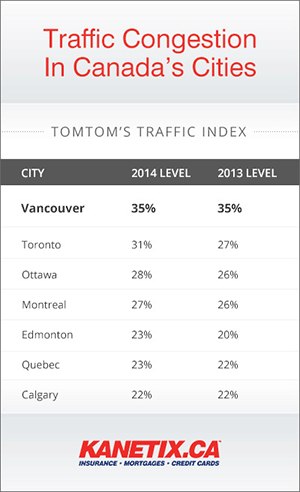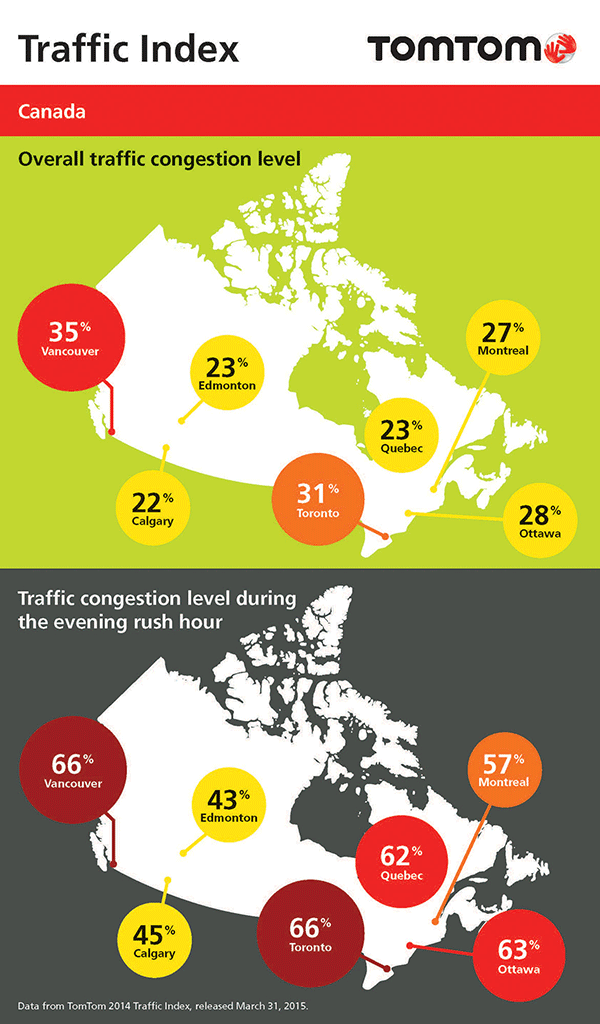 What TomTom's New Traffic Index Says About Canadian Traffic Congestion
What TomTom's New Traffic Index Says About Canadian Traffic Congestion
Think traffic congestion is getting worse? According to TomTom, you're right. You spent more time in traffic this year, than you did last year by about 2 hours.
TomTom recently released its 5th annual Traffic Index, a report that uses data based on actual GPS measurements from over 200 cities worldwide to help gauge traffic congestion levels. And, while there are certainly cities experiencing far worse traffic congestion levels than found in Canadian cities-Istanbul, Mexico City and Rio de Janeiro top the list-traffic congestion in Canada isn't getting any better, and in many cities is getting worse.
- Do gas prices affect how often you drive? A recent KANETIX.ca survey asked Canadians if cheaper gas would have an impact on their driving habits. See what was said.

What Does Congestion Level Mean?
Congestion level is best explained by example. Vancouver's congestion level is 35 per cent, which means that Vancouver drivers have 35 per cent longer travel times, than what could normally be expected, because of traffic.
Is The Traditional Workweek To Blame For Traffic Congestion?
This year's Index suggests that traffic congestion is getting worse. The data shows that traffic has worsened in five out of seven of the Canadian cities measured. Overall the average congestion rate in Canada is 27 per cent, a 2 per cent increase over last year; however, when looking at the evening rush hour specifically, the congestion rate in Canada is estimated to be 57 per cent.
TomTom suggests that these increasingly high levels of congestion are partly due to the traditional workweek schedule, which causes a surplus of drivers all trying to get to and from work all at once. It goes on to point out that overall congestion could decrease if workplaces adopted more flexible work schedules.

What Does This Bump In Traffic Congestion Mean In Dollars?
The average Canadian commuter is said to have lost 79 hours due to traffic delays in 2014, and that number climbs to 84 hours in cities such as Toronto, Montreal and Vancouver. This rise in traffic costs Canadians more than just time on the clock. The average annual cost of gridlock in Toronto alone is over $11 billion, according to a CandianBusiness.com article.
Commuting and Your Car Insurance
Yes, traffic congestion is a growing problem around the world. However on the bright side, you don't have to worry about traffic delays driving up the cost of your car insurance. Your car insurance rate factors in the distance you drive for your commute-not the time it takes you to drive the distance.
And, if traffic congestion has you rethinking your commute and you happen to be lucky enough to be able to eliminate it altogether, you could potentially save up to 10 per cent off your insurance premiums. Public transit is sounding better and better.




